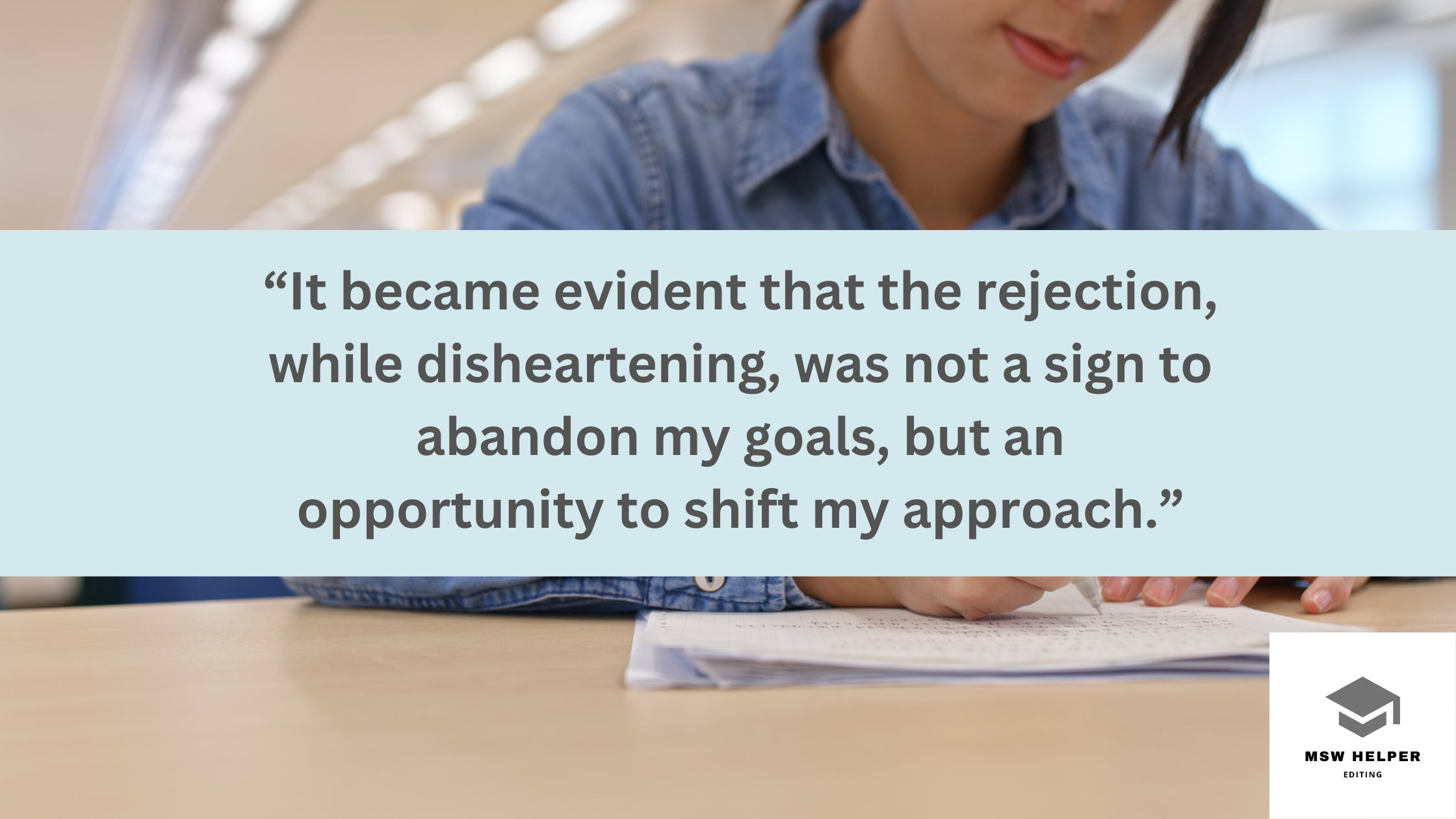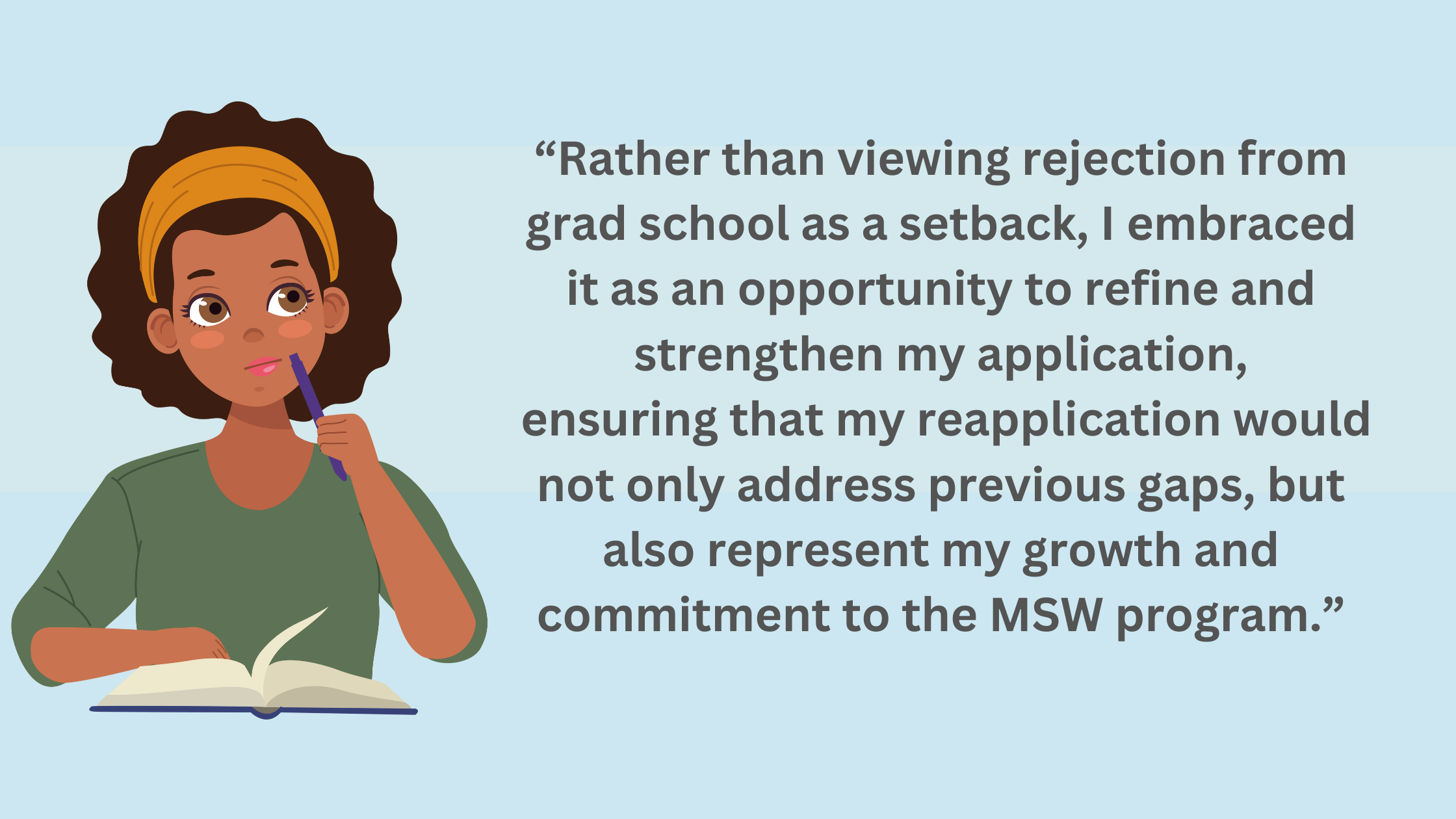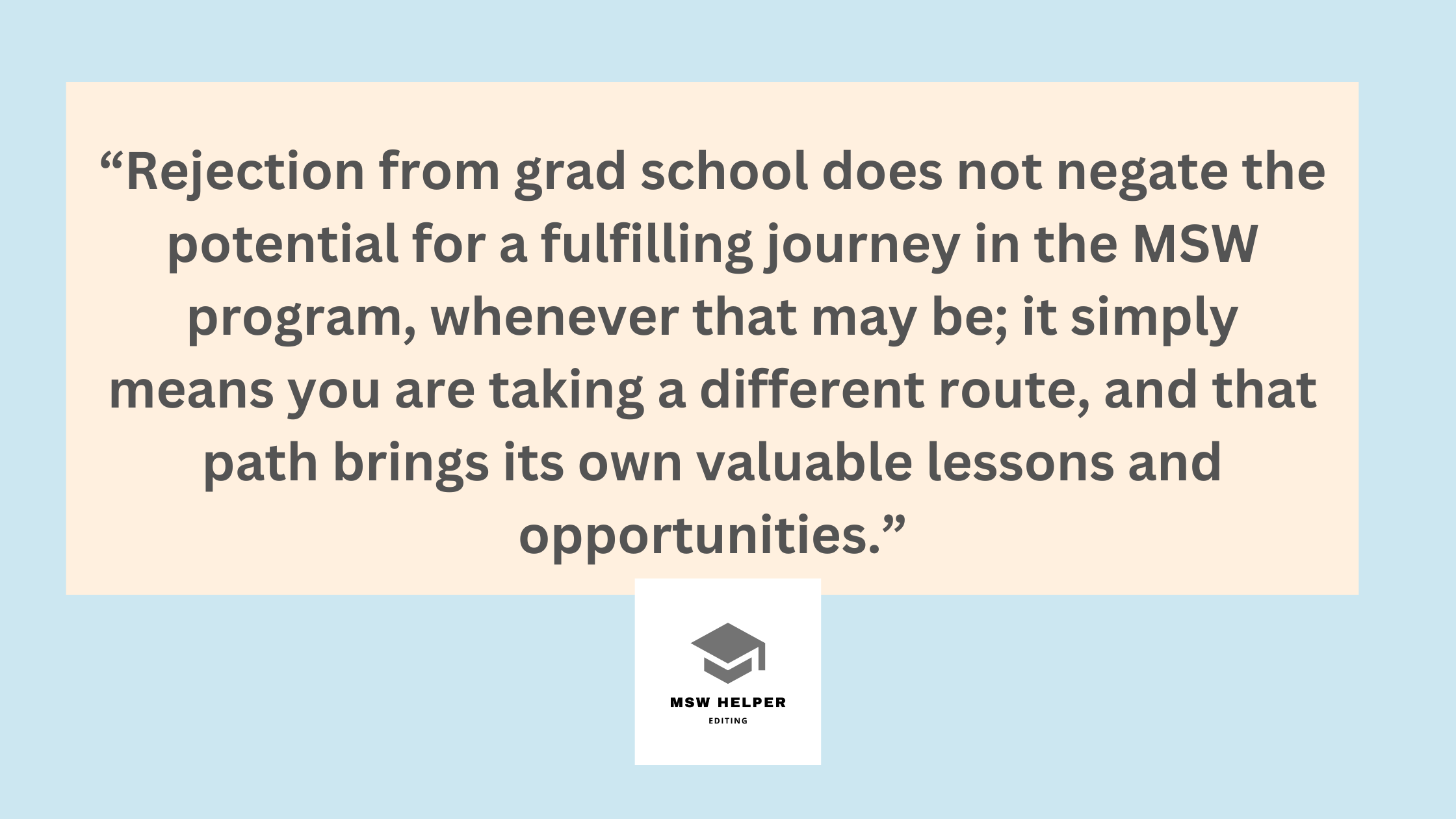Can I Apply To Graduate School Twice? (The Answer Is YES, Definitely.)
Receiving that first rejection from a Master of Social Work (MSW) program was a gut-wrenching experience. It felt as if the result of my passion, strong academic record, and the vast range of experiences I had gained were suddenly insignificant. The doubts crept in, and I questioned whether I had overestimated my abilities or misunderstood my calling in social work.
When I began the application process for the MSW program, I did so with a significant level of confidence in the strength of my application. Countless hours were dedicated to every component. In my eyes, the application represented my significant dedication to the field of social work. The process wasn't just about submitting documents; it was an investment of time, energy, and passion. Therefore, navigating the aftermath of rejection was, without a doubt, a challenging experience. The realization that the path I had planned needed to be reimagined forced me to confront the uncertainties of the application process. It also emphasized the inherent challenges and competitive nature of admission into MSW programs. Understandably, there were many emotions that came along with these realizations.
Overcoming the initial 'no': Coping after getting rejected from grad school
An important step in overcoming rejection is to allow yourself to feel all of the emotions that come with rejection. It is natural to feel disappointed, frustrated, and even question your abilities. I allowed myself time to feel all of these emotions (which may have involved a full week of drowning my sorrows in ice cream and countless hours of movies). Talking to friends, family, and mentors provided a valuable support system, helping me process the rejection and gain a clearer perspective on my goals. It became evident that the rejection, while disheartening, was not a sign to abandon my goals, but an opportunity to shift my approach.
What to do if you get rejected from graduate school:
How my grad school rejection became my foundation for transformation.
Rather than letting the rejection define me, I decided to view it as an opportunity for transformation and self-reflection. It became evident that I needed to reassess my application and identify areas for improvement. This introspection led to a deeper understanding of my strengths and weaknesses, setting the stage for a stronger application.
After reviewing my application, it was clear that an important component needing attention was my personal statement. Recognizing that this section played an important role in highlighting my motivations, experiences, and goals, I acknowledged its weakness as a key factor in the initial rejection. This reflection of the weaknesses of my application was not an exercise in self-criticism, but an opportunity for transforming my application into a more well-rounded package that better represented my passion for social work.
Understanding the competitive nature of the admissions process and acknowledging the need for a stronger application, I came to the realization that additional experience in the field could only serve to strengthen my application. This acknowledgment wasn't just about filling a requirement; it was a strategic choice to engage further with the field of social work, equipping me with practical insights and a broader understanding of key components of the profession.
In essence, the rejection served as a catalyst for a transformative process of self-discovery and professional growth. Rather than viewing it as a setback, I embraced it as an opportunity to refine and strengthen my application, ensuring that my reapplication would not only address previous gaps, but also represent my growth and commitment to the MSW program.
Improving my application to avoid getting rejected from grad school twice
In this section, I want to be clear about the specific actions I took to eventually secure my spot in a MSW program, building on what I mentioned earlier. Doing these things does not guarantee acceptance, but it can help to strengthen your application.
I strengthened my personal statement:
I worked on making my personal statement stronger, ensuring it truly reflected my dedication to social work. This involved reaching out for writing support, which included accessing resources offered by MSW Helper! MSW Helper is the ONLY service dedicated specifically to helping MSW applicants complete their applications to social work programs.
I secured a new position at work:
I took on a new position within my workplace to expand my understanding and gain additional knowledge in the field of social work. This step broadened my practical experience in ways that enriched my overall skill set and expertise.
I sought out resources and mentorship support:
I actively sought out resources and mentorship support. This was crucial in further strengthening my application and navigating the complexities of the reapplication process.
I took an extra year before reapplying:
I took an additional year off from applying. This was a personal choice as I felt I needed more time for personal growth and professional development. If you decide to reapply the following year, you will still gain an extra year of experience. I ended up taking two years, which was a bonus, but not necessary!
I clarified my future goals:
I got clear about my future goals. In my first application, I was not clear about why I wanted to be a master-level social worker, and that may have been a reason for the rejection. It is crucial to showcase why they should accept you and why you need a MSW degree to achieve your goals.
The silver lining: Why you should definitely apply twice if you got rejected from grad school
Now that I am in a MSW program, I want to share what I see as the benefits of applying twice, and how this experience has supported me in the program.
With the risk of sounding dramatic, the initial rejection felt like the end of the world. It was difficult to accept that my academic timeline would no longer be what I had planned. However, the unexpected delay, though challenging, offered unexpected advantages.
The additional experiences gained during my time off have significantly improved my ability to apply theoretical concepts to real-world practice. This practical understanding has been invaluable in navigating the more complex theories discussed in the MSW program. It also allowed me to opt for an in-person program and in my first choice of specialization, a choice that has significantly enriched my learning experience. Most importantly, I could not imagine completing the MSW program with anyone other than my current cohort!
If you were accepted on your first attempt, you can undoubtedly have these transformative experiences as well. The intention here is to provide hope and encouragement for those who faced rejection. Rejection does not negate the potential for a fulfilling journey in the MSW program, whenever that may be; it simply means you are taking a different route, and that path brings its own valuable lessons and opportunities.
Securing acceptance into the MSW program after facing rejection brought a profound sense of accomplishment. The process taught me that success is not only about achieving our goals, but also about the personal and professional growth developed along the way.
Applying to your Master of Social Work? Check out these free resources to help you strengthen your personal statement:
Free MSW personal statement webinar: How to write a compelling personal statement and make your application stand out
See what past MSW applicants have said about MSW Helper:
“I first would like to start by saying (MSW Helper) was very helpful and worked very fast to get me my paper by the deadline. I purchased the full package and would highly recommend this to anyone who is struggling on where to even start when apply to MSW program.
Before completing this I was denied from an MSW program and was very discouraged on applying again but after working with [my Application Advisor] she was able to help point out the strengths of my paper and what could use work. I was now accepted into my top choice and couldn’t thank [my Application Advisor] enough for her help throughout this process !”
Related resources:




